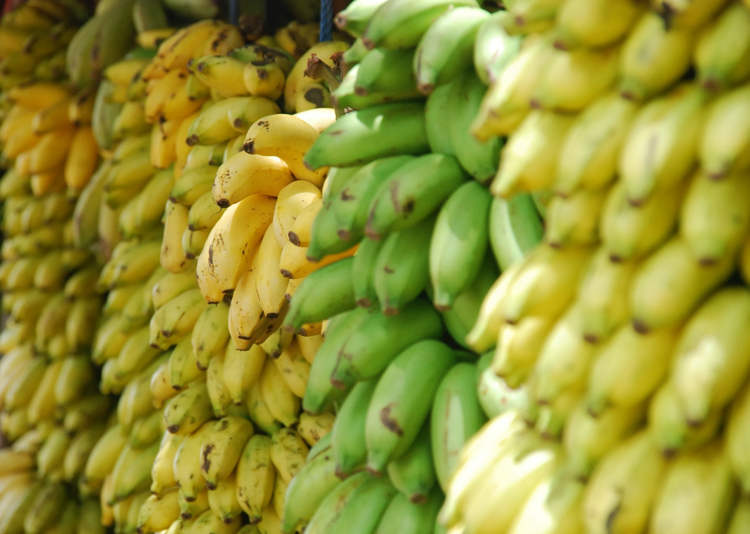An international team of scientists has reportedly created a genetically-modified ‘superbanana’ that contains significantly more nutrients, especially vitamin A.
Vitamin A deficiency has been plaguing poor countries in sub-Saharan Africa and Southeast Asia for hundreds of years, inhibiting children’s growth, causing blindness and significantly weakening their resistance to deadly treatable diseases such as diarrhea and measles. The World Health Organization estimates that 190 million preschool-aged children worldwide are deficient in vitamin A and that malnutrition accounts for 6% of early childhood deaths in Africa alone. Luckily, a cheap and viable solution to malnutrition and vitamin A deficiency, in particular, may be available in the very near future…

Photo: Giorgio Trovato/Unsplash
Uganda is one of several African countries battling malnutrition, but it could also be the source of the cure to this plague. A team of researchers from the African country’s National Agricultural Research Laboratories, in collaboration with Australian agricultural scientist James Dale and the Bill and Melinda Gates Foundation has reportedly created a genetically-modified banana that contains all the necessary nutrients to combat malnutrition.
The Banana21 project was launched in 2005, and after 18 years of investments – the Bill and Melinda Gates Foundation alone contributed $11 million – hard work and failed attempts, scientists have finally created a banana capable of saving millions of children’s lives. Cases of genetic modifications in banana trees to better resist pests, fungus or drought are well documented, but this is reportedly the first time a banana has been successfully altered to act as a nutritional supplement for humans.

Photo: Lotte Lohr/Unsplash
According to National Geographic, the superbanana is ready to be cultivated, but scientists are still waiting for approval from the local government. Unfortunately, this may be a significant hurdle, considering the strong opposition to the cultivation of genetically modified foods in Uganda. Such crops are currently strictly forbidden. Hopefully, legislators will take the example of their Kenyan peers who recently lifted a decade-long ban on GM crops.
Luckily, the problem of Vitamin A deficiency has all but disappeared in economically-developed countries thanks to supplement supplementation.












